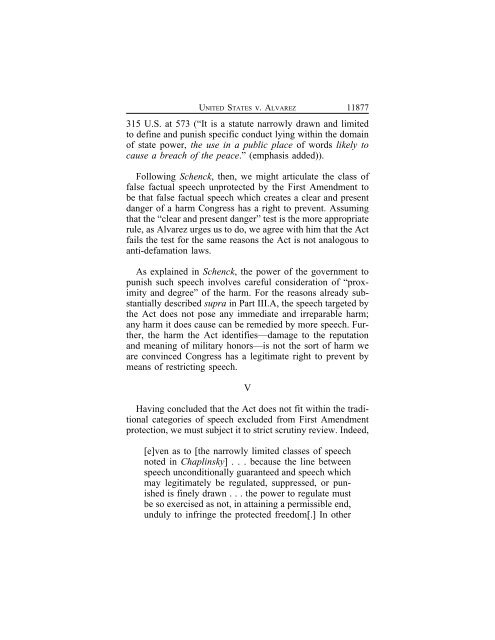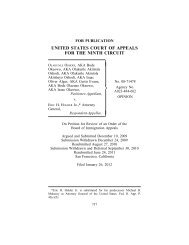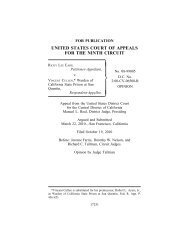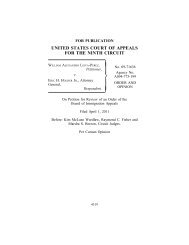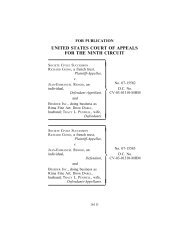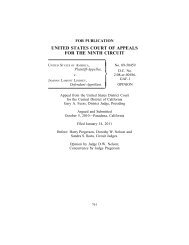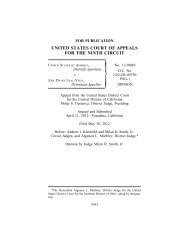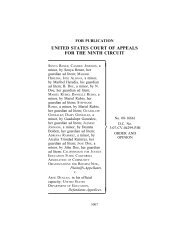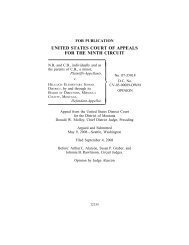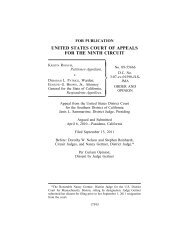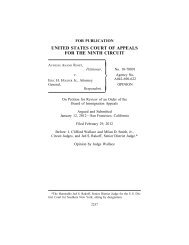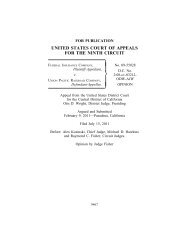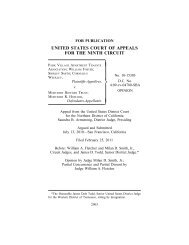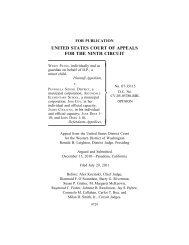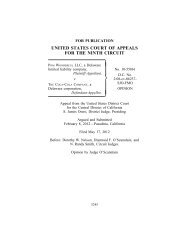USA v. Xavier Alvarez - Ninth Circuit Court of Appeals
USA v. Xavier Alvarez - Ninth Circuit Court of Appeals
USA v. Xavier Alvarez - Ninth Circuit Court of Appeals
Create successful ePaper yourself
Turn your PDF publications into a flip-book with our unique Google optimized e-Paper software.
UNITED STATES v. ALVAREZ<br />
315 U.S. at 573 (“It is a statute narrowly drawn and limited<br />
to define and punish specific conduct lying within the domain<br />
<strong>of</strong> state power, the use in a public place <strong>of</strong> words likely to<br />
cause a breach <strong>of</strong> the peace.” (emphasis added)).<br />
Following Schenck, then, we might articulate the class <strong>of</strong><br />
false factual speech unprotected by the First Amendment to<br />
be that false factual speech which creates a clear and present<br />
danger <strong>of</strong> a harm Congress has a right to prevent. Assuming<br />
that the “clear and present danger” test is the more appropriate<br />
rule, as <strong>Alvarez</strong> urges us to do, we agree with him that the Act<br />
fails the test for the same reasons the Act is not analogous to<br />
anti-defamation laws.<br />
As explained in Schenck, the power <strong>of</strong> the government to<br />
punish such speech involves careful consideration <strong>of</strong> “proximity<br />
and degree” <strong>of</strong> the harm. For the reasons already substantially<br />
described supra in Part III.A, the speech targeted by<br />
the Act does not pose any immediate and irreparable harm;<br />
any harm it does cause can be remedied by more speech. Further,<br />
the harm the Act identifies—damage to the reputation<br />
and meaning <strong>of</strong> military honors—is not the sort <strong>of</strong> harm we<br />
are convinced Congress has a legitimate right to prevent by<br />
means <strong>of</strong> restricting speech.<br />
V<br />
Having concluded that the Act does not fit within the traditional<br />
categories <strong>of</strong> speech excluded from First Amendment<br />
protection, we must subject it to strict scrutiny review. Indeed,<br />
[e]ven as to [the narrowly limited classes <strong>of</strong> speech<br />
noted in Chaplinsky] . . . because the line between<br />
speech unconditionally guaranteed and speech which<br />
may legitimately be regulated, suppressed, or punished<br />
is finely drawn . . . the power to regulate must<br />
be so exercised as not, in attaining a permissible end,<br />
unduly to infringe the protected freedom[.] In other<br />
11877


